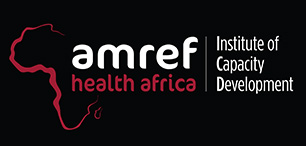The Management Development Institute (MDI) for Health Care Organizations is a one-week intensive program designed to enhance the leadership and management skills of program managers and leaders of sub-Saharan organizations, governmental and non-governmental, that are devoted to delivering health care services to underserved populations. The program has been designed to specifically assist African ministries of health in implementing their particular national health priorities.
The MDI program was designed by world-class management faculty from the Anderson School of Management at the University of California Los Angeles (UCLA) and by leaders of Amref Health Africa.
The primary goal of the MDI is to assist African Ministries of Health in implementing their particular national health priorities and improving the effectiveness of their health systems by enhancing the leadership and management skills and practices of program managers and leaders of organizations that are devoted to delivering healthcare services to underserved populations.
Location/Region: Kakamega, Kilifi, Nairobi and Nyeri Counties, Kenya
Project Duration: 1 year
Donor: Johnson & Johnson
The Management Development Institute consists of ten modules focusing on specific areas of management directly relevant to national ministries of health and their implementing partners as they evaluate their missions and implement their health plans to achieve their stated priorities.
- Organizational Planning
- Leadership and Human Resources Management
- Health Economics and Health Financing
- Governance and Ethics
- Change Management
- Operations Management
- Financial Management
- Social Marketing
- Health Information Systems
- Program Evaluation and Monitoring
Participants gained access to management tools, frameworks and knowledge that enabled them to increase the quantity and quality of health services they provided along with improved access to them. Since its inception in 2006, 1,632 participants from 41 African countries have graduated from this program.
